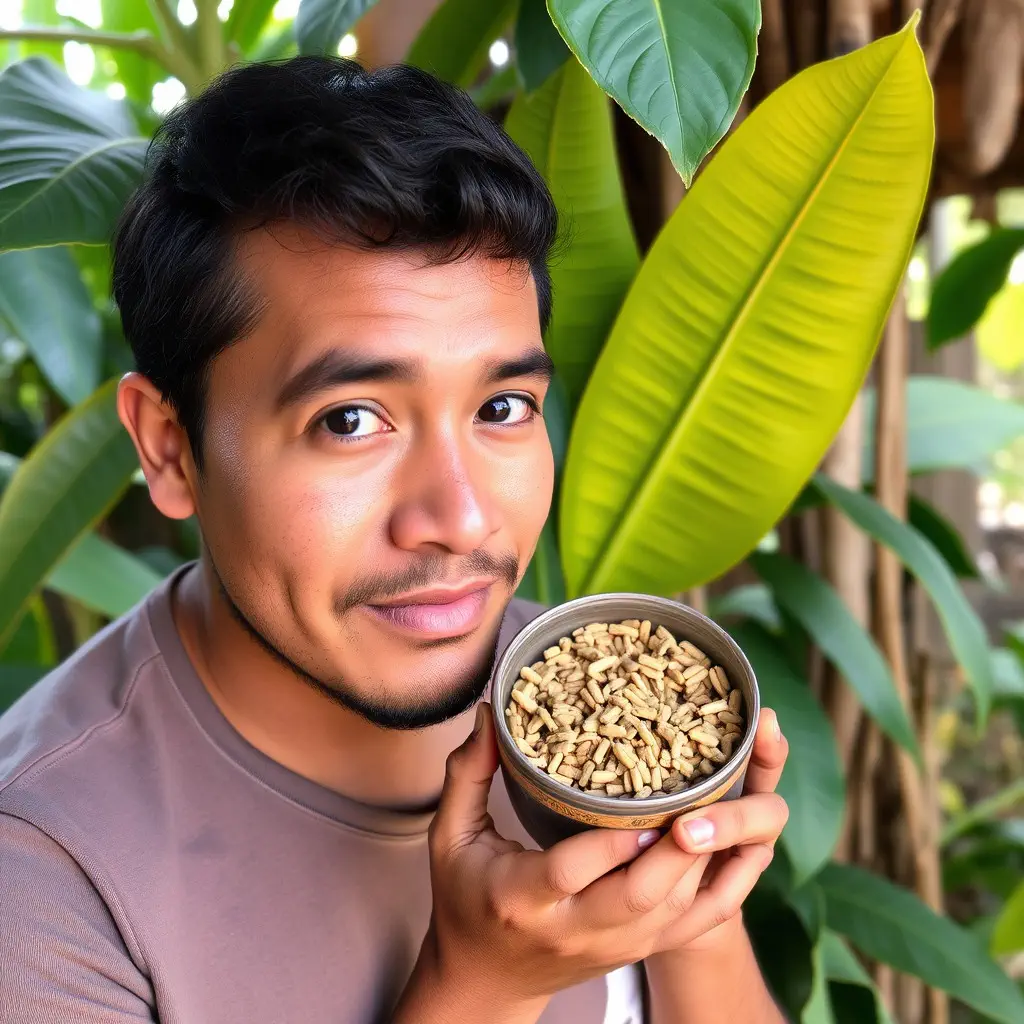Barberry Root Tea, rich in berberine, is highlighted as a complementary practice alongside Kratom for enhancing mental resilience. Both substances offer synergistic benefits: Kratom provides stimulating and mood-enhancing properties that can improve focus and cognitive function, while Barberry Root Tea supports stress management and digestive health. This combination is particularly beneficial for athletes, students, and professionals seeking peak performance, as it aids in maintaining high levels of performance during demanding tasks. Beyond immediate effects, long-term use of these natural remedies can contribute to balanced mood and effective stress management, which are key components of mental resilience. The antioxidants in Barberry Root Tea work with Kratom's alkaloids to support overall mental clarity and focus, making it a valuable addition to holistic mental fortitude-building strategies. Additionally, the tea can help with cognitive clarity and emotional fortitude, potentially reducing inflammation and oxidative stress in the brain for a clearer and more resilient mind. Regular consumption of Barberry Root Tea is associated with improved focus, calming effects to manage stress, and regulation of neurotransmitters like serotonin, making it a potent tool for those looking to enhance their mental toughness and endurance.
Embarking on a journey to fortify mental resilience can be a transformative endeavor, particularly when incorporating the synergistic effects of kratom and barberry root tea into your training regimen. This article delves into the intersection of herbal supplementation and athletic performance enhancement, offering insights into how these natural elements can amplify focus, endurance, and emotional fortitude. Through a detailed exploration of cultivating mental toughness, we will guide you through strategies that integrate kratom effectively, ensuring optimal peak performance and sustained stamina. Additionally, the unique properties of barberry root tea are highlighted, illuminating its role in sharpening cognitive clarity while bolstering emotional resilience. Join us as we unravel the potential of these natural allies in the quest for mental toughness.
- Cultivating Mental Resilience Through Kratom and Barberry Root Tea: A Synergistic Approach to Enhanced Focus and Stamina
- Strategies for Integrating Kratom into Training Regimens for Peak Performance and Endurance
- The Role of Barberry Root Tea in Mental Toughness Training: Balancing Cognitive Clarity and Emotional Fortitude
Cultivating Mental Resilience Through Kratom and Barberry Root Tea: A Synergistic Approach to Enhanced Focus and Stamina

Engaging in the cultivation of mental resilience is a multifaceted endeavor that can be significantly bolstered by incorporating Kratom and Barberry Root Tea into one’s training regimen. Kratom, derived from the Mitragyna speciosa tree, has been traditionally used for its stimulating and mood-enhancing properties, which can aid in maintaining a high level of focus during demanding activities. When consumed responsibly, Kratom can help individuals push through mental barriers by alleviating fatigue and sharpening cognitive function. Paired with Barberry Root Tea, which is celebrated for its zeste role in digestive health and as an adaptogen that helps the body resist stressors, this synergistic approach offers a dual benefit for those seeking to enhance their mental stamina. The combination of these natural substances can lead to improved concentration and endurance, allowing athletes, students, or professionals to sustain peak performance throughout their training or work sessions.
Furthermore, the integration of Kratom and Barberry Root Tea as part of a mental toughness strategy is not solely about immediate effects but also about long-term well-being. Regular intake of these substances, in appropriate dosages, can contribute to a more balanced mood and stress management, which are crucial components of mental resilience. The antioxidants and alkaloids present in Barberry Root Tea, such as berberine, work synergistically with the compounds found in Kratom leaves to support overall mental clarity and focus. This holistic approach not only aids in the immediate enhancement of one’s ability to concentrate and endure but also supports the long-term development of a robust mental fortitude that can withstand various life challenges.
Strategies for Integrating Kratom into Training Regimens for Peak Performance and Endurance

Integrating kratom into training regimens can be a nuanced process that requires careful consideration of one’s individual response to the substance, as well as the specific goals of their training. Kratom, derived from the leaves of the Mitragyna speciosa tree, is known for its stimulant and sedative effects at varying doses, which can be harnessed to enhance both peak performance and endurance during rigorous activities. For those seeking to bolster their mental fortitude and physical stamina, it’s crucial to approach kratom use with a strategic mindset.
One effective strategy is to incorporate barberry root tea, a natural supplement that has traditionally been used for its energizing properties and potential mood-enhancing effects. When combined judiciously with kratom, this duo can offer sustained energy levels and mental clarity without the crash often associated with caffeine or other stimulants. It’s important to monitor how these substances interact within your system, as individual sensitivities can vary greatly. Additionally, athletes and trainers should consider timing their kratom intake to align with periods of intense training or competition, aiming for a balanced energy profile that supports endurance without overwhelming fatigue. Regular monitoring of one’s performance metrics, alongside the subjective experience of well-being, will help in fine-tuning this approach and achieving optimal results.
The Role of Barberry Root Tea in Mental Toughness Training: Balancing Cognitive Clarity and Emotional Fortitude

Integrating Barberry Root Tea into mental toughness training can be a potent approach for athletes and individuals seeking to enhance both cognitive clarity and emotional fortitude. Berberine, an active alkaloid found in Barberry Root Tea, has been studied for its potential impact on mental performance and mood regulation. Regular consumption of this herbal brew may contribute to heightened focus and concentration, which are crucial components of mental resilience. The tea’s calming properties might also help individuals manage stress more effectively, allowing them to maintain composure under pressure. This dual effect of promoting mental acuity while simultaneously soothing emotional reactivity is particularly beneficial in high-stakes environments where both sharp thinking and emotional control are paramount. Additionally, Barberry Root Tea’s role in supporting overall brain health cannot be overlooked, as it may aid in the reduction of inflammation and oxidative stress, contributing to a clearer, more resilient mind.
Furthermore, the inclusion of Barberry Root Tea within a comprehensive mental toughness regimen can provide a synergistic effect when combined with other cognitive training exercises. For instance, when paired with consistent mental training practices, such as visualization and mindfulness techniques, individuals may experience an amplified enhancement in their ability to stay focused, maintain motivation, and recover from setbacks more swiftly. The tea’s potential role in regulating neurotransmitters like serotonin may also play a part in fostering a steady emotional equilibrium, which is essential for maintaining mental toughness over time. As such, Barberry Root Tea emerges as a valuable addition to the arsenal of strategies employed by those dedicated to honing their mental resilience.
Incorporating kratom and barberry root tea into training regimens can significantly bolster mental toughness, offering strategies for athletes and individuals seeking enhanced focus and endurance. The synergistic effects of these natural substances are particularly notable when it comes to balancing cognitive clarity with emotional fortitude, a key aspect of mental resilience. By adhering to the outlined practices, one can navigate the demands of high-level performance with greater ease and maintain stamina under pressure. As a concluding note, integrating these approaches into a structured training plan may not only improve overall athletic capabilities but also contribute to a robust mental game, essential for success in any competitive endeavor.






